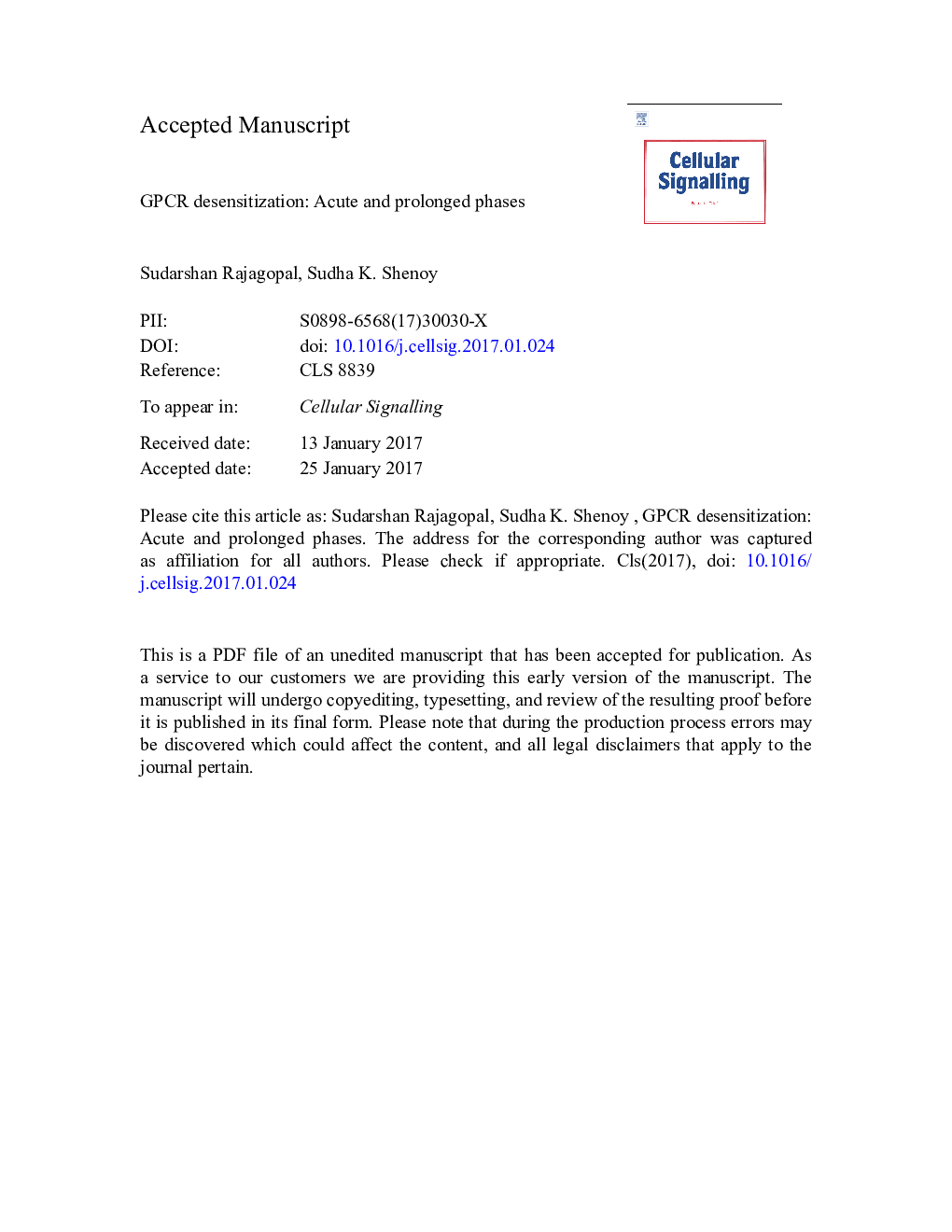| کد مقاله | کد نشریه | سال انتشار | مقاله انگلیسی | نسخه تمام متن |
|---|---|---|---|---|
| 8309133 | 1538503 | 2018 | 25 صفحه PDF | دانلود رایگان |
عنوان انگلیسی مقاله ISI
GPCR desensitization: Acute and prolonged phases
دانلود مقاله + سفارش ترجمه
دانلود مقاله ISI انگلیسی
رایگان برای ایرانیان
کلمات کلیدی
موضوعات مرتبط
علوم زیستی و بیوفناوری
بیوشیمی، ژنتیک و زیست شناسی مولکولی
زیست شیمی
پیش نمایش صفحه اول مقاله

چکیده انگلیسی
G protein-coupled receptors (GPCRs) transduce a wide array of extracellular signals and regulate virtually every aspect of physiology. While GPCR signaling is essential, overstimulation can be deleterious, resulting in cellular toxicity or uncontrolled cellular growth. Accordingly, nature has developed a number of mechanisms for limiting GPCR signaling, which are broadly referred to as desensitization, and refer to a decrease in response to repeated or continuous stimulation. Short-term desensitization occurs over minutes, and is primarily associated with β-arrestins preventing G protein interaction with a GPCR. Longer-term desensitization, referred to as downregulation, occurs over hours to days, and involves receptor internalization into vesicles, degradation in lysosomes and decreased receptor mRNA levels through unclear mechanisms. Phosphorylation of the receptor by GPCR kinases (GRKs) and the recruitment of β-arrestins is critical to both these short- and long-term desensitization mechanisms. In addition to phosphorylation, both the GPCR and β-arrestins are modified post-translationally in several ways, including by ubiquitination. For many GPCRs, receptor ubiquitination promotes degradation of agonist-activated receptors in the lysosomes. Other proteins also play important roles in desensitization, including phosphodiesterases, RGS family proteins and A-kinase-anchoring proteins. Together, this intricate network of kinases, ubiquitin ligases, and adaptor proteins orchestrate the acute and prolonged desensitization of GPCRs.
ناشر
Database: Elsevier - ScienceDirect (ساینس دایرکت)
Journal: Cellular Signalling - Volume 41, January 2018, Pages 9-16
Journal: Cellular Signalling - Volume 41, January 2018, Pages 9-16
نویسندگان
Sudarshan Rajagopal, Sudha K. Shenoy,